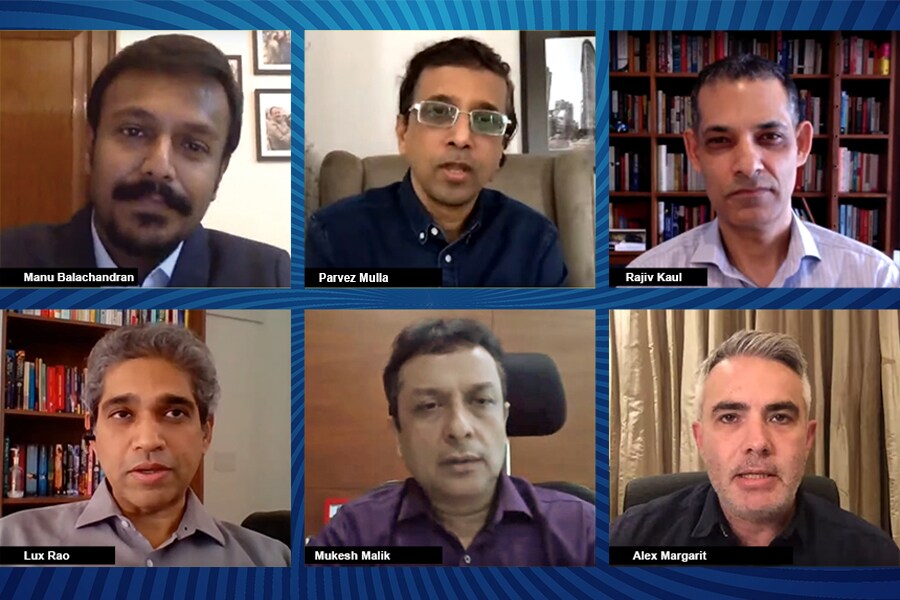Technology solutions for seamless workflows
Overcoming challenges posed by remote working norms


The ongoing COVID-19 pandemic has taken a great economic toll. By many estimates, India could be looking at a severe economic downturn as a result of this crisis. Yet amidst all these uncertainties, many corporates have taken the opportunity to rethink and reinvent themselves. With considerable changes in customer preferences, employee engagement, management styles and the ecosystem, technology has moved to the fore, proving itself to be a pivot rather than just an enabler, as perceived earlier.
Another interesting trend has been the rapid rate at which companies have transformed digitally what would previously take years to implement has been adopted within months. Work from home, which was an experiment at a few companies until some months ago, had become the new norm, thanks to availability of suitable technology.
However, remote working ecosystems come with their own set of challenges. At the same time, this new situation provides companies with a real opportunity to improve workflows, using technology, and removing roadblocks and silos to ensure enhanced productivity, evolve team cultures and eliminate traditional hierarchies.
To discuss how technology has provided an answer to many facets of this crisis, for businesses of all shapes and sizes and deliberate on how work can continue seamlessly, Forbes India hosted a virtual conversation - Forbes CXO Speak - Disrupting Work in the New Normal, in partnership with ServiceNow. The corporate luminaries that participated in the event included Rajiv Kaul, EVC, CEO and Whole time Director, CMS Info Systems Mukesh Malik, COO, Aditya Birla Capital Parvez Mulla, COO, HDFC Life Lux Rao, Senior Director Solutions & Leader – Digital Transformation, NTT India and Alex Margarit, APJ Senior Director, Employee Workflows, ServiceNow.
With all the norms of doing business having been questioned by the crisis, CXO have begun to reconsider the need for many offices, chains of command and various other corporate traditions that were taken for granted in the past. The focus, instead, has shifted to the cloud, cybersecurity and collaboration. As technology has enabling ‘work form anywhere’, Lux Rao said, “In the new normal, enterprises need to choose the right technology and ensure work-life balance for employees to improve productivity.” He also underlined the need to hike cybersecurity to ensure that work from home (WFH) remains digitally uncompromised.
The crisis has separated the serious digital organisations from the fashionistas of digital, who only spent moderately on technology to buy into a trend. Rajiv Kaul remarked, “Our priority is using technology like never before. We have already automated our operations and use ML in our reconciliation processes. We are also using technology to try to predict the likelihood of fraud, in both the cyber and physical world.” Parvez Mulla agreed that cyber security challenges have become a genuine concern, with a shift to WFH. “Cyber security has become the priority of even CEOs today.” He added, “The risk of security, productivity and socio-economic challenges are creating new avenues for technology and non-technology solutions.”
The wellbeing of employees is also becoming a priority, especially with remote work schedules. In fact, companies will be judged by how they treat their employees. “We don’t want to lose the human touch and our empathy element. That is something all organisations need to refocus on,” said Mukesh Malik. He went on to add, “We see one-third of our employees working from home in the medium to long-term too.”
Looking ahead, it appears that Covid-19 has changed the work scenario for good work ecosystems of the future will be crafted as hybrid models with a blend of part-time and full time WFH, depending on the nature of the business and its requirements. The trend of outsourcing may pick up pace too, with economic casualties coming to the fore. When that happens, India stands to gain.
As the curve moves from response to recovery and then to resilience, an uptake in technologies like AI/ML from Centres of Excellence can be expected. Greater adoption of cloud and others technologies like IoT, which have been used as test cases will gain acceptance. Corporates will seek out safe and sustainable digital solutions to adapt to the new normal, post Covid-19.
Disclaimer: The views, suggestions and opinions expressed here are the sole responsibility of the experts. No Forbes India journalist was involved in the writing and production of this article.
First Published: Oct 07, 2020, 11:05
Subscribe Now